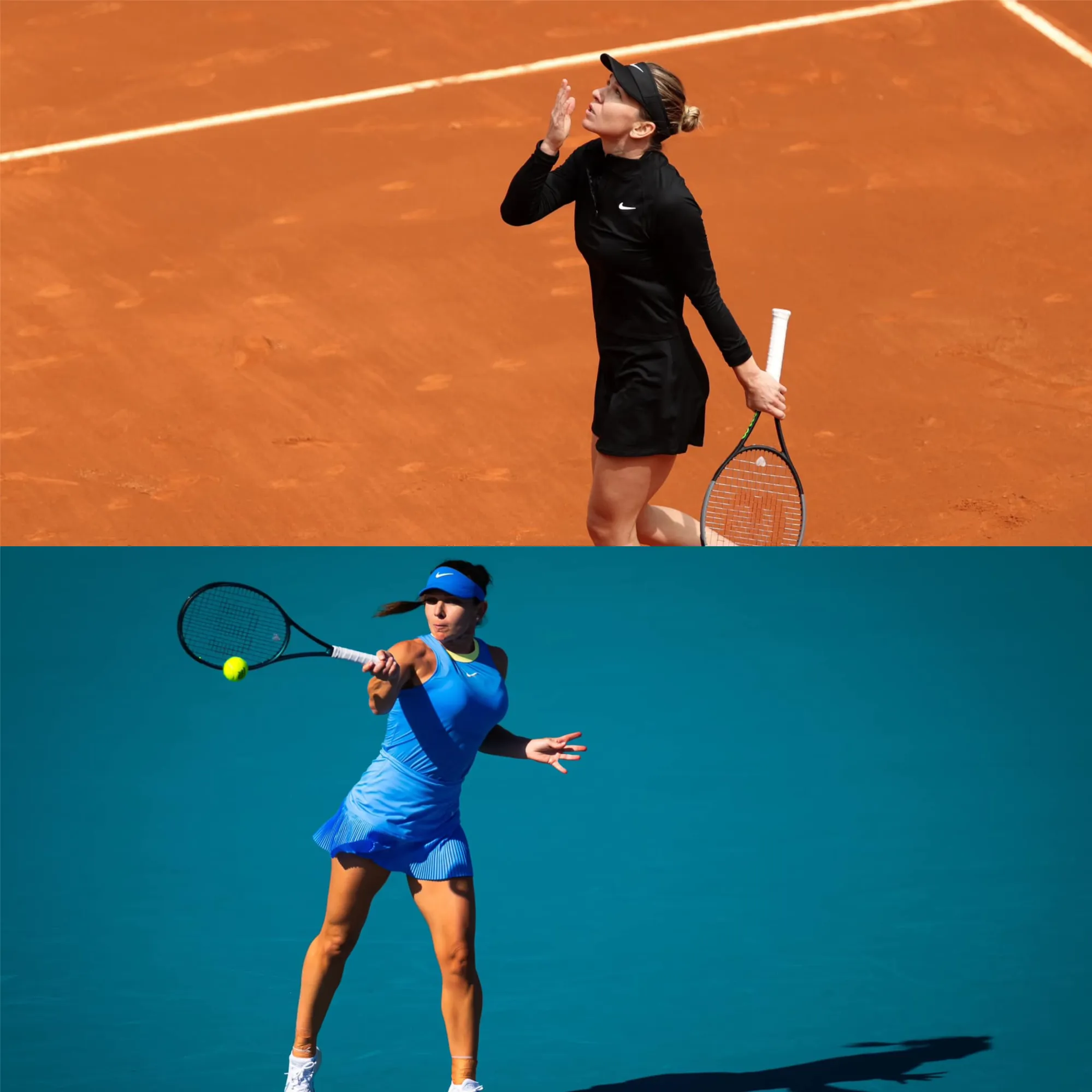Simona Halep Criticizes ‘Unacceptable’ Handling of Doping Cases, Avoids Naming Iga Swiatek

Former world No. 1 Simona Halep has openly expressed her frustration with what she describes as the “unfair and unacceptable” handling of doping cases in tennis. Halep, who received a four-year ban after testing positive for Roxadustat in 2022, contrasted her situation with that of Iga Swiatek and Jannik Sinner, both of whom faced doping-related allegations but received significantly lighter consequences.
Halep’s doping suspension, initially set at four years, was reduced to nine months by the Court of Arbitration for Sport (CAS) after an appeal. Despite serving her time, Halep continues to feel targeted, particularly in light of Swiatek’s recent case involving the banned substance trimetazidine.

Swiatek’s Case Sparks Halep’s Frustration
The International Tennis Integrity Agency (ITIA) announced that Swiatek tested positive for trimetazidine in August but faced only a one-month suspension. The ITIA determined that Swiatek bore “no significant fault or negligence,” allowing her to serve most of her suspension retroactively and resume play by early October. As a result, the five-time Grand Slam champion remains eligible for high-profile tournaments like the United Cup and Australian Open.
Halep refrained from directly naming Swiatek but expressed deep disappointment. “Big pain, big pain,” Halep said in an interview with Telegraph Sport. “The woman player – I don’t want to give her name, but you know who I’m talking about – received a three-week suspension, then played two events, and then was suspended again. What is this? It’s just unacceptable. I feel it is not fair.”
A Double Standard?
Halep also highlighted the case of Jannik Sinner, who avoided suspension despite failing two doping tests in March. Sinner claimed the presence of clostebol, an anabolic steroid, resulted from a topical spray applied during a massage by his physiotherapist. The tribunal accepted this explanation, but the World Anti-Doping Agency (WADA) has since appealed to the CAS, seeking a two-year ban for the Italian player.
Halep compared these outcomes to her lengthy suspension, describing a sense of unequal treatment. “I already felt the ITIA was unfair to me before, but now it’s even more. I’ve lost sleep over this. The entire process has been incredibly painful, and seeing these outcomes only adds to my frustration.”

The Struggle to Return
After serving her suspension, Halep returned to competitive tennis in 2023 but has faced significant challenges. Having played only five matches since her comeback, she admitted the process has been tougher than anticipated.
“I didn’t expect it to be so difficult,” Halep said. “The emotions before matches are overwhelming. I feel sick to my stomach, and physically, I’ve felt soft. The steps to the ball, the reactions—they’re not the same. My brain isn’t sending the right messages to my legs.”
The two-time Grand Slam winner continues to focus on rebuilding her confidence. “Every day I’m on the court, doing what I’ve always done, but matches feel different. After playing two tournaments, I was so sore for days. My goal now is to get more matches, more wins, and regain my confidence.”
Moving Forward
Halep’s pointed comments reflect her dissatisfaction with the sport’s handling of doping cases, raising broader questions about consistency and fairness in enforcement. As she works to rebuild her career, Halep remains outspoken, determined to challenge the status quo while striving to return to her best form on the court.
Her journey back to top-level tennis, coupled with her willingness to confront perceived injustices, ensures that Halep’s voice will remain an influential one in the sport. Simona Halep, once a dominant force in women’s tennis, is now fighting not only for victories but also for what she sees as fairness and accountability.







